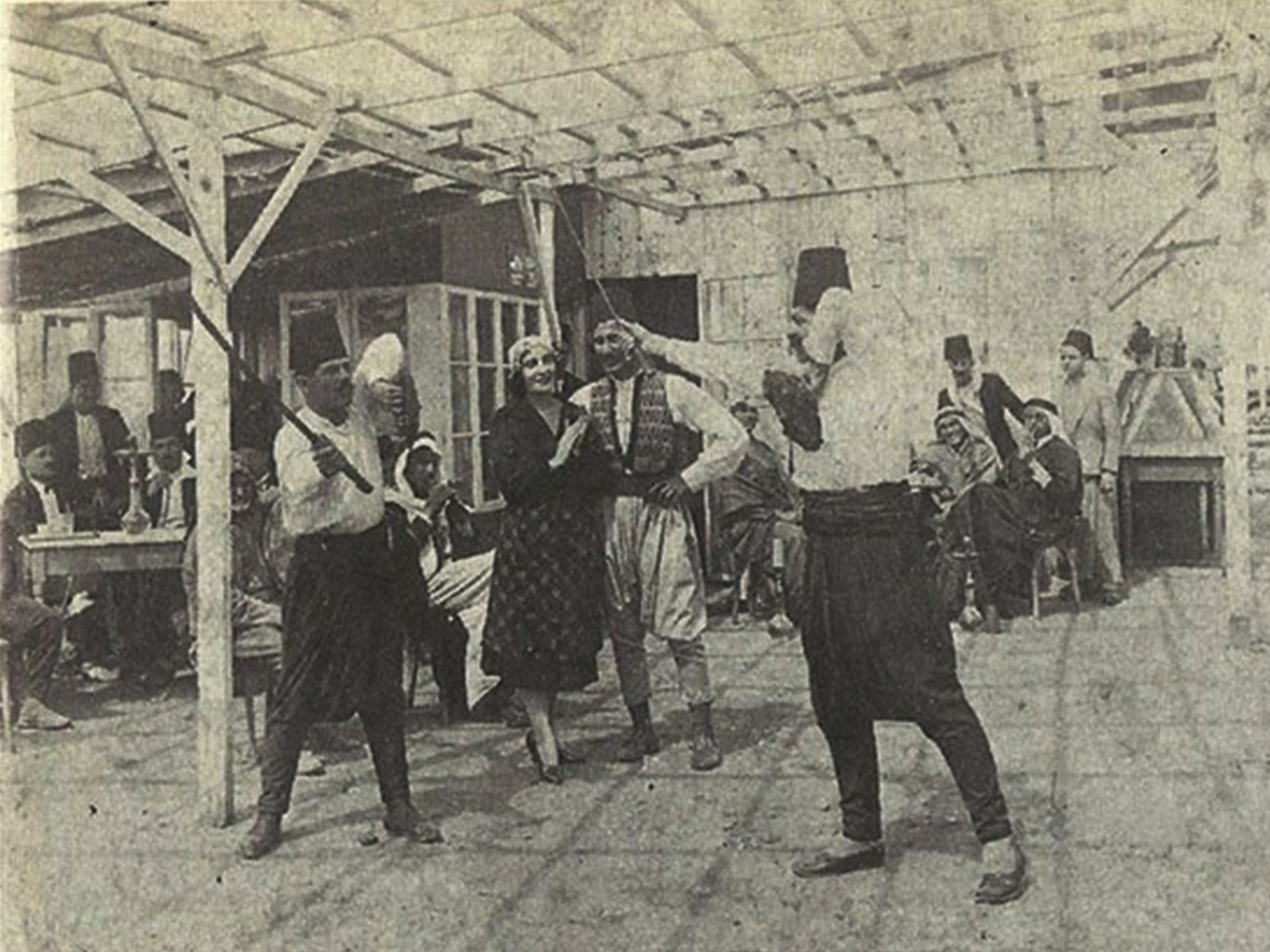
- Film
A Brief Look at Lebanese Cinema
Lebanon’s history has been marked by World Wars, famine, and the League of Nations French Mandate. Since its independence in 1943, Lebanon has seen civil war, occupation, political turmoil, and the massive influx of Palestinian refugees – and healthy production of films.
The first credited Lebanese film, a silent titled The Adventures of Elias Mabruk, was made in 1929, but for many years, Lebanese filmmaking was overshadowed by the Egyptian film industry. Herta Gargour, who managed the film studio Luminar Films, is credited with establishing filmmaking in Lebanon after the silent era. Under the French Mandate, theaters became common in Beirut and some were used as a venue for political gatherings. After Lebanon became independent from France, an economic boom – as well as its liberal and multi-cultural society – made Beirut the financial center of the Middle East and a viable production alternative to Egypt.
During the 1960s, Beirut enjoyed a period of relative calm, prospering from tourism and international finance. It became known as the Paris of the Middle East, one of the most important centers of literature and cinema in the Arab World, until the outbreak of the civil war. Not surprisingly, this period also is called the Golden Age of Lebanese cinema. Lebanon had the best technical facilities for film production in the Middle East, as well as a monopoly on distribution. Co-productions with Egypt and Syria were common in this period.
The films from this time were commercial and popular, like The Rahbani Brothers’ nostalgic musicals. But also, The Small Stranger (George Nasser & Youssef Maalouf) was selected for the 1962 Cannes Film Festival. In 1965, UNESCO established the Arab Cinema Center in Beirut as a regional hub to link film activities across the Arab World, and in 1971, Beirut hosted the Arab World’s first international film festival.
Then came the sectarian Lebanese civil war (1975-1990) which left thousands dead and a million Lebanese displaced. This sparked a change of tone in filmmaking, in which war and living in its midst became the major theme.
Several important filmmakers emerged at this time. Arguably, Lebanon’s most prominent filmmaker, Maroun Baghdadi, made Little Wars, a war drama, with financial aid from Francis Coppola, which screened at 1982 Cannes and New York Film Festivals. Borhane Alaouié’s 1981 film Beirut, The Encounter centers on two lovers – one Christian, one Shiite – who finally make contact the day before one leaves for the US, 1984’s A Suspended Life by Jocelyne Saab, is about striving to survive in war-torn Beirut.
Beirut: The Last Home Movie, a documentary film directed by Jennifer Fox in 1987 (in which a New Yorker travels to Beirut during the war to reunite with her upper-class Lebanese family) won the Grand Jury Prize Documentary at the 1988 Sundance Film Festival.
Other filmmakers that emerged during the civil war were Heiny Srour (a women’s rights advocate and the first female Arab filmmaker to have a film chosen for the Cannes Film Festival); Jean Kahlil Chamoun, Jocelyne Saab (one of the pioneers of Lebanese cinema); and Randa Chahal Sabaq (whose first documentary Step by Step won the Press Award at the International Festival of French-Speaking Film, and whose critical breakthrough came with The Kite, which won the Silver Lion at the 2003 Venice Film Festival). Most of the themes concentrated on political conflicts and displacement.
After the war, Beirut once again re-emerged as a center of media production, especially television. Universities offered degrees in Cinema and TV. Many of the films produced in the 1990s were hits at international film festivals. Film production was on the increase and has seen significant growth since.
Hors la vie (Out of Life), Maroun Baghdadi’s true story of Patrick Perrault, a French journalist is taken hostage in war-torn Beirut, won the 1991 Special Jury Prize at Cannes. The Tornado by Samir Habchi was actually shot on location during the civil war and was awarded the Special Jury Prize at the 1992 Festival de Bastiz. Ziad Doueiri’s West Beirut was the first Lebanese film to have a general release in America and received many awards at various international festivals. (His 2017 The Insult was the first Lebanese movie to be nominated for an Oscar.)
In 2003, Georges Schoucair joined Joana Hadjithomas and Khalil Joreige to form Abbout Productions, which now stands as Lebanon’s foremost film production house. It supports Arabic language movies with a distinctly Arab voice. They’ve also ventured into TV production with a drama (The King’s Wives) and other television projects. Schoucair’s Shortcut Films, whose aim is to support independent films with stories that transcend boundaries and cultures, and are able to appeal to an international audience, is a company dedicated to financing and producing independent feature films.
By 2004, film production was again on the rise and has seen significant growth since, with films such as Danielle Arbid’s 2004 Maarek Hob (In the Battlefields)A Perfect Day by Joana Hadjithomas & Khalil Joreige; and 2006’s Falafel by Michel Kammoun. Caramel by Nadine Labaki enjoyed international release in 2007, as well as critical and box office success. In 2018, her film Capernaum received a richly deserved Golden Globe nomination as Foreign Language Film.
Lebanese filmmakers have powered through incredible difficulties to bring their stories to the rest of the world. We applaud their ingenuity, their talent, and their persistence. This may be the true Golden Age of film in Lebanon.

